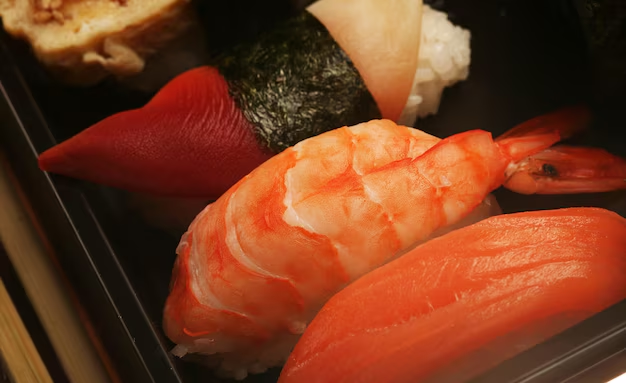How Long Does Salmon Last in the Fridge? Your Ultimate Guide to Freshness
Ah, salmon—rich in flavor, versatile in the kitchen, and packed full of essential nutrients like omega-3 fatty acids. Whether you're pan-searing a fillet or whipping up an exquisite salmon tartare, ensuring your salmon stays fresh is essential for both taste and health reasons. Let's dive deep into how long you can store salmon in the refrigerator and explore best practices to maintain its quality.
🕑 How Long is Salmon Refrigerated?
Grabbing a pack of salmon at the grocery store or fishing it fresh out of the water, the goal remains the same: keeping it as fresh as possible until you're ready to cook. Refrigerated salmon generally stays fresh for up to 1-2 days. This timeline can vary depending on how it's stored and its initial freshness when purchased.
Factors Affecting Shelf Life
While these are standard timelines, a few factors can make a considerable difference:
- Packaging: Vacuum-sealed packaging can extend the freshness by reducing exposure to air and bacteria.
- Temperature: Maintaining a steady refrigerator temperature of 32-38°F (0-3°C) extends freshness.
- Moisture: Too much moisture can lead to bacterial growth, so keeping salmon dry is key.
🥶 Freezer: A Longer-Term Solution
If you're not planning to use your salmon within a couple of days, freezing is a feasible option. Salmon can be frozen for up to 2-3 months for best quality. To achieve this, wrap the fish tightly using freezer paper or aluminum foil and place it in an airtight container or heavy-duty freezer bag.
Pro Tips for Freezing Salmon
- Flash Freezing: For optimal freshness, consider flash freezing the salmon by placing it on a parchment-lined baking sheet and freezing uncovered before transferring to a container.
- Labeling: Always label your packages with the date of freezing to keep track of its age.
- Defrosting: Thaw salmon slowly in the refrigerator for 24 hours before use to maintain quality.
🛒 Buying the Freshest Salmon
How do you ensure the salmon you're buying is fresh enough to potentially extend its shelf life once you bring it home? Here are some practical tips:
- Look for Bright Color: The flesh should be vibrant, without any brown or gray spots.
- Check for Firmness: Fresh salmon should feel firm to the touch and not leave indentations.
- Smell Test: Fresh salmon has a mild scent, while an overtly fishy smell is a sign of spoilage.
Types of Salmon: Does Variety Matter?
Different types of salmon—like Atlantic, Coho, or Sockeye—may have variations in texture and taste. However, their refrigeration shelf life remains broadly similar if all other storage conditions are the same.
🚫 Signs of Spoilage
Ensuring salmon is fresh involves recognizing when it's not. Here are clear indicators your salmon may have passed its prime:
- Off-Putting Smell: A pungent, fishy odor often signals spoilage.
- Slimy Texture: While fresh salmon is moist, it should not be slimy or sticky.
- Discoloration: Any significant color changes, especially to grey or brownish tints, suggest spoilage.
🧊 Proper Storage Practices
Storing Fresh Salmon
For optimal freshness, follow these steps:
- Pat Dry: Use a paper towel to remove excess moisture.
- Wrap It: Use a layer of plastic wrap, then a layer of foil, or place it in a zip-lock bag.
- Container: Store it in a container on a bed of ice at the bottom of the fridge to keep it extra cold.
Storing Cooked Salmon
Cooked salmon lasts slightly longer than fresh salmon and can be kept in the refrigerator for 3-4 days. Ensure proper storage:
- Seal It: Store in an airtight container or tightly wrap in foil.
- Cool It Quickly: Always let cooked salmon cool to room temperature before refrigerating to prevent loss of moisture through condensation.
🥗 Incorporate Leftover Salmon
Have some salmon that's about to reach its limit? Transforming it into a new dish is a delicious strategy:
- Salmon Salad: Mix with avocado and spinach for a fresh twist.
- Salmon Patties: Combine with breadcrumbs and spices to create savory patties.
- Pasta Additions: Flake into pasta dishes for an extra protein boost.
🔍 Quick Reference Guide: Salmon Storage
For quick referencing, here's a handy list highlighting key points on salmon storage:
🟢 Fresh Salmon:
- In Fridge: 1-2 days
- In Freezer: 2-3 months
🔵 Cooked Salmon:
- In Fridge: 3-4 days
🟠 Signs of Spoilage:
- Strong odor
- Slimy texture
- Discoloration
🔴 Storage Tips:
- Keep cold and dry
- Store immediately
- Defrost in the fridge
🍽️ Bringing It All Together
Understanding and maintaining the freshness of salmon doesn’t just boost its flavor—it ensures a safer, more enjoyable dining experience. With a bit of attention to buying, storing, and preparing, your salmon meals can consistently captivate both taste buds and tummies.
Whether freezing your latest catch, navigating the grocery store aisles, or cooking up an exquisite dish, these insights will help you maximize the freshness and flavor of your salmon. By following these practical guidelines, you're well on your way to becoming a salmon-storage savant!

